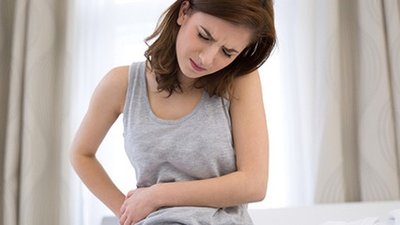Where Can Salpingitis Cause Pain in the Body?
Salpingitis is a common clinical condition of chronic pelvic inflammation, which can lead to physical pain in female patients. In severe cases, it may also lead to infertility. However, many women don't realize this and often wait until the pain is severe before seeking medical attention.
So, where does salpingitis cause pain in the body? Besides these symptoms, what else is there?
In general, salpingitis can cause symptoms of abdominal pain. If the patient has inflammation of the right fallopian tube, it will cause pain in the right lower abdomen; if the left fallopian tube is inflamed, it will cause pain in the left lower abdomen. The degree of pain will vary depending on the severity of the patient's condition.
Generally, patients with mild tubal inflammation have no obvious clinical symptoms, while patients with severe conditions have more obvious pain symptoms. Moreover, the pain often worsens during menstruation, after exertion, and after sexual intercourse.
The main reasons why salpingitis can cause pain are:
1. The human body is infected with bacteria leading to this disease, and the stimulation of inflammation will lead to pelvic congestion, enlarged fallopian tubes, etc., causing abdominal pain.
2. Inflammation leads to blockages or adhesions that often cause large amounts of material to accumulate in the fallopian tubes and uterine cavity, which can be painful to touch. It is sometimes accompanied by disorders such as pain in the lower abdomen and, in severe cases, can affect normal reproductive function.
3. Inflammation leads to hydrosalpinx, localized edema, the appearance of lower abdominal pain, and other abnormal manifestations.

In addition to the symptoms of abdominal pain, salpingitis can also lead to other clinical symptoms such as:
1. Infertility:
Inflammation of the fallopian tubes leads to localized adhesions, and if inflammatory changes occur in both tubes and adhesions are present, infertility can result, as there is no way for sperm and egg to combine.
2. Irregular menstruation:
The vast majority of female patients suffer from irregular menstruation, which is one of the more common symptoms and is most likely the result of pelvic congestion and ovarian dysfunction. The presence of inflammation leads to fibrosis of the uterus, which ultimately results in excessive menstrual flow.
3. Dysmenorrhea:
Patients with excessive pelvic congestion eventually develop stasis dysmenorrhea, with abdominal pain occurring one week before the onset of menstruation and the pain becoming more severe the closer the menstrual period is.
4. Increased Leukorrhea:
The last typical symptom is increased leukorrhea, and there are also patients who have no conscious symptoms other than infertility.
Therefore, when you find salpingitis, you must treat it actively. If the treatment is not timely, the inflammation will become more and more serious, which will cause tubal abscess, tubal obstruction, infertility, or ectopic pregnancy. Acute salpingitis can be completely cured in the vast majority of cases after proper antibiotic treatment, but it can develop into a chronic one if it is not diagnosed and treated in a timely and correct manner.
Chronic salpingitis is usually treated with symptomatic treatment, such as more rest, strengthened nutrition, appropriate exercise, enhanced physical fitness, and so on, and the treatment plan needs to be chosen according to different situations. For chronic pain, it can be regulated by traditional Chinese medicine that promotes blood circulation and removes blood stasis, such as Fuyan Pill. Consistent use of these medicines can relieve pain and eliminate inflammation.
In conclusion, the three normal areas of pain for patients with inflamed fallopian tubes are in the abdomen, lower back, and kidneys, and female patients who develop the disease must receive treatment as soon as possible to relieve their pain. If there is inflammation in the fallopian tubes, it is also necessary to deal with it before undergoing IVF treatment. Otherwise, it is likely to have a negative impact on the later embryo implantation.
You may also be interested in:
Is Hydrosalpinx Really "Water"? It's Not As Simple As You Think
previous pageCan Fallopian Tubes Be Naturally Blocked?
next page
You may also be interested in
- Is Fallopian Tube Blockage Causing Your Lower Abdominal Pain?
- Hydrosalpinx and IVF: What Are the Chances of Successful Embryo Implantation?
- Resistance During Fallopian Tube Examination May Indicate Mild Blockage
- What Should Patients with Fallopian Tube Blockage Pay Attention to in Their Daily Life?
- Mild Fallopian Tube Blockage: Exercise and Heat Therapy as Adjunct Treatments
Testimonials
- Adenomyosis with Ureaplasma Urealyticum Cured by Fuyan Pill
- Tubal blockage with hydrosalpinx can be cured by TCM shortly
- Fuyan Pill Helps A woman with Adenomyosis Get Pregnant
- A Woman with Hydrosalpinx Is Cured with Fuyan pill
- Pelvic Inflammatory Disease Testimonials
- Irregular Vaginal Bleeding and Endometrial Thickening Cured by Fuyan Pill
- Pruritus Vulvae and Frequent Urination: Mycoplasma Infection Cured after 2 Courses



